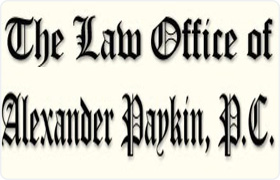Massapequa Park Real Estate Lawyer, New York
Sponsored Law Firm
-
 x
x

Click For More Info:
-
The Law Office of Alexander Paykin, P.C.
350 5Th Ave Fl 59 New York, NY 10118» view mapReal Estate Reliable. Dependable. Accessible.
Whether you are buying, selling, renting, or refinancing your house, our experienced legal team will strongly advocate for you at each and every step of the process.
800-747-9261
John Weber
✓ VERIFIEDBankruptcy & Debt, Real Estate, Estate, Credit & Debt, Collection
With the singular focus of individual Bankruptcy Law, we bring a collective effort to delivering personalized and effective representation to each of ... (more)
Claudia L Bauer
Criminal, Family Law, Personal Injury, Real Estate, Workers' Compensation
Status: In Good Standing
John Martin Bigler
Real Estate, Elder Law, Estate Planning
Status: In Good Standing Licensed: 47 Years
Jeffrey M. Di Luccio
Premises Liability, Federal Trial Practice, Insurance, Medical Malpractice
Status: In Good Standing
Mildred J. Michalczyk
Real Estate, Immigration, Divorce & Family Law, Estate
Status: In Good Standing
George Evangelos Patsis
Criminal, Divorce & Family Law, Estate, Real Estate
Status: In Good Standing Licensed: 24 Years
Scott Robert Cohen
Landlord-Tenant, Insurance, Collection, Legal Malpractice
Status: In Good Standing
David Adam Blansky
Real Estate, Litigation, Lawsuit & Dispute, Bankruptcy
Status: In Good Standing Licensed: 27 Years
Joseph L Hunsberger
Real Estate, Wills & Probate, Trusts, Estate
Status: In Good Standing Licensed: 25 Years
Mark Aaron Brandoff
Lawsuit & Dispute, Real Estate, Business
Status: In Good Standing Licensed: 49 Years
 Alexander Paykin New York, NY
Alexander Paykin New York, NY AboutThe Law Office of Alexander Paykin, P.C.
AboutThe Law Office of Alexander Paykin, P.C. Practice AreasSpecializations
Practice AreasSpecializations

